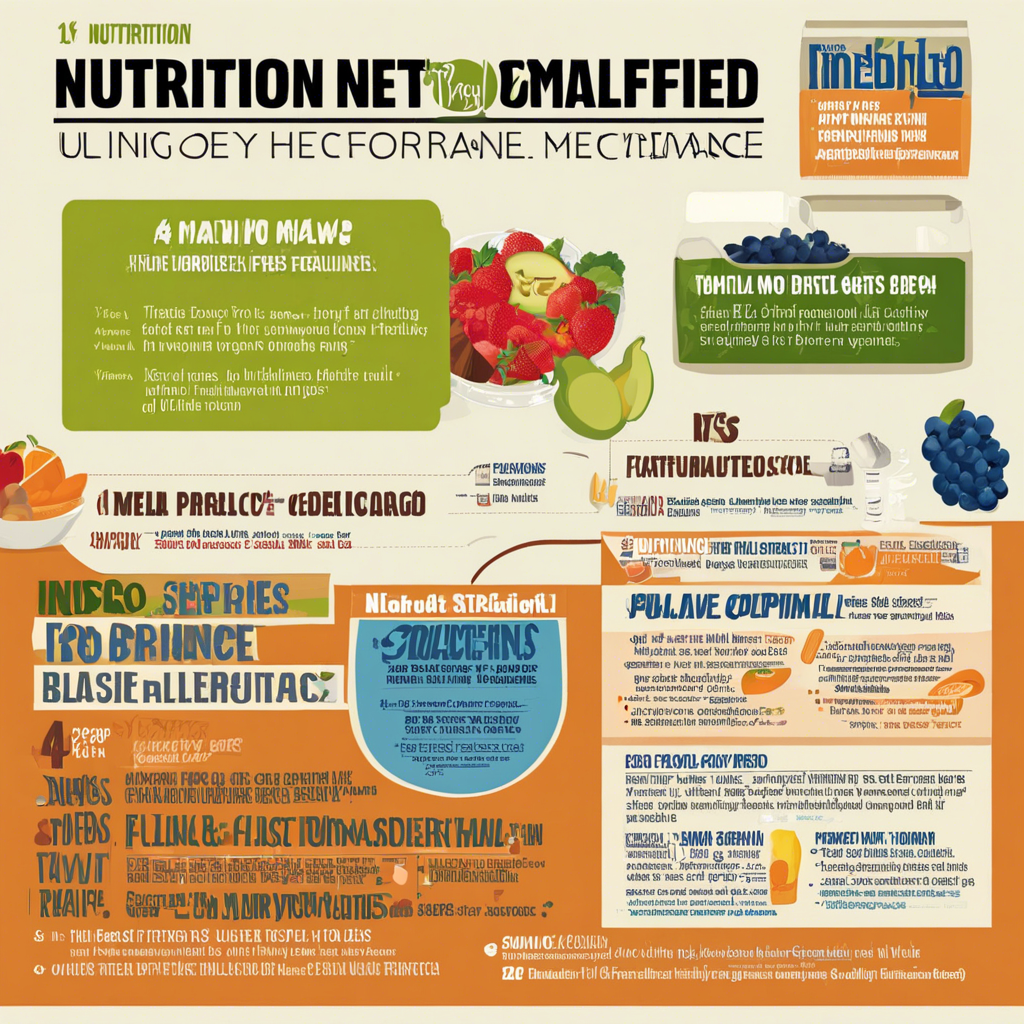Nutrition is a complex and often confusing topic, with new diet trends and conflicting advice emerging constantly. However, understanding what your body needs and how to fuel it effectively doesn’t have to be so daunting. Optimal nutrition is key to performing at your best, whether you’re an athlete, a busy professional, or simply seeking a healthier lifestyle. So, let’s break down some simple strategies to ensure your body gets the fuel it needs.
First and foremost, it’s important to understand that everyone’s nutritional needs are unique. Factors such as age, gender, activity level, and individual health goals play a significant role in determining your ideal diet. A one-size-fits-all approach is simply not effective when it comes to nutrition. A tailored plan that considers your specific circumstances is always the best approach. For instance, an athlete training for a marathon will have vastly different nutritional needs compared to someone who works a desk job and is seeking to maintain their weight. Therefore, it’s essential to seek guidance from qualified professionals who can help you navigate the world of nutrition and create a plan suited to your individual needs.
That being said, there are some universal principles that form the foundation of a healthy diet for everyone. A balanced approach that includes a variety of whole foods is key. That means filling your plate with plenty of fruits and vegetables, which are packed with essential vitamins, minerals, and fiber. Opt for complex carbohydrates, such as whole grains, which provide a steady release of energy, and include lean protein sources in your meals, such as fish, beans, and poultry, to support muscle health and repair.
In addition to choosing nutritious foods, it’s equally important to pay attention to your body’s hunger and fullness cues. Eating mindfully involves recognizing and responding to these signals, ensuring you fuel your body adequately without overeating. Taking time to chew your food thoroughly, avoiding distractions during mealtimes, and savoring the flavors and textures of your food can all contribute to a more mindful eating experience. This practice not only enhances your enjoyment of food but also helps you maintain a healthy relationship with eating.
Water is also an essential component of optimal nutrition, as it is crucial for digestion, absorption, and transportation of nutrients throughout the body. Staying properly hydrated can also impact your energy levels and cognitive function, so be sure to sip water throughout the day. Aim for around 2-3 liters of water, and listen to your body’s thirst signals. Keep in mind that factors such as activity level, weather, and individual variations can influence your hydration needs, so adjust your water intake accordingly.
While it’s important to ensure you’re getting enough calories and nutrients, it’s equally beneficial to consider the quality of the foods you’re consuming. Not all calories are created equal, and filling your diet with nutrient-dense options ensures your body gets the vitamins and minerals it needs to function optimally. For instance, choosing complex carbohydrates like brown rice or quinoa over refined white bread or pastries can provide your body with a slower release of energy and a greater array of nutrients.
In today’s fast-paced world, it’s easy to overlook the importance of nutrition and how it impacts our overall well-being. Taking a proactive approach to what we eat and how we fuel our bodies can have a profound impact on our health and performance. This includes being mindful of our food choices and taking the time to understand what our bodies need to function at their best. Small changes, such as swapping out processed snacks for nutritious alternatives or adding more colorful vegetables to our meals, can make a big difference over time.
Lastly, it’s worth noting that optimal nutrition is a journey, and it doesn’t happen overnight. It’s okay to indulge in treats or fall off track occasionally. The key is to strive for progress, not perfection, and to develop a healthy relationship with food that is sustainable for the long term. So, embrace a positive mindset, listen to your body, and enjoy the process of discovering what works best for you. With a little patience and persistence, you’ll be well on your way to fueling your body for optimal performance and a healthier, happier you.
